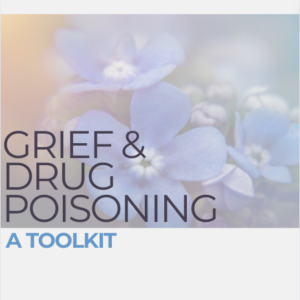Posts Tagged ‘story’
Preparing For and Coping with Special Days
Special Days can be days we have honoured with our loved ones that many others celebrate or more personal dates and milestones with your loved one. As these days approach, it can be difficult to figure out how to move through a Special Day. Do you do what you’ve always done? What do you do if you just want to ignore the day? Special Days can bring up a lot of different emotions, triggers, and opportunities to honour the person who has died.
Why Can Special Days Feel so Hard?
While we are grieving, it can feel as if our world has stopped while the rest of the world seems so happy and carry on as if nothing has happened. After the death of a loved one, there are other transitions and losses we can be grieving while we grieve the death. We may be letting go of old roles while taking on new roles in our family. There may be changes in our relationships and dynamics with others.
Planning Ahead Can Help Us Prepare
There’s no “right” way to feel as a Special Day approaches. You may dread the event, feel on edge, be angry at the number of store displays triggering your grief, or find yourself honouring your loved one and feeling joy.
Planning can help lower anxiety and can help us feel more prepared to cope. Grief can change from moment to moment. If your plans need to change the day of, that’s okay too.
Involve your support network that you usually spend this time with, including children, in conversations about what they would like to do. Everyone is impacted by grief, no matter their age, ability, gender, race, or other identities. You can find more information on grief and supporting grievers with intellectual disabilities here and a post about supporting grieving children here.
Taking Care of Yourselves Through and After Special Days
You may find that your grief is heavier in the lead-up to the Special Day, on the Special Day itself, or that you may experience a wave of grief in the day(s) afterwards.
Here are some gentle reminders:
- You may not be able to do all the things you have done or had planned to do, but be compassionate with yourself. You are allowed to set boundaries around your capacity so you can give yourself plenty of care and rest during this time.
- Grief can impact us mentally, emotionally, and physically. We can find ourselves exhausted in different ways, especially after going through heavy days. Check out our tips on the different ways we can give ourselves rest and care as we grieve here.
- This time of year can have us grievers feeling more overwhelmed or lonely at this time of year. If it feels right, think about it and reach out to people in your network you find supportive. Asking for specific support helps our loved ones give us what we need. The 3 H’s can help us name what type of support we may be needing:
- Heard: To feel listened to, validated, without judgement
- Help: Problem-solving, practical support like cooking, cleaning, childcare, etc.
- Hug: Sometimes we don’t need words of comfort, but a comforting touch like a hug.
- There is no right way to feel on a Special Day. You are allowed to experience moments of joy and lightness on these days while also missing your loved one.
____________________________________________________________________________________
Jessica Milette, MSW, RSW. Grief Stories Healthcare Consultant
Jessica is a registered social worker and owner and of Cultivating Connections. Her expertise includes helping individuals and families facing anticipatory grief, ambiguous loss, disenfranchised losses, and sudden deaths. Jessica believes in the power of connection; within ourselves, with those who have died, those we are in relationship with, and with our greater communities. Through sharing our stories of grief and loss, we tend to our connection with those who have died and creating connections with others.
Jessica is a white woman living on the traditional territory of the Anishnabek, the Haudenosaunee, the Attiwonderonk, and the Mississaugas of the Credit peoples, also known as Guelph, ON.
Practicing Self Compassion while Grieving
Grief is messy, confusing, enormously painful, and never seems to follow a linear path. This is when we need to take care of ourselves deeply, and yet, why is it that this is also when we beat ourselves up the most?
We are good at being compassionate toward others when they are grieving — something especially evident in social media. The outpouring of love, support, and acknowledgment of the loss is substantial and immediate, giving us the opportunity to virtually show up for every single bereaved friend we have ever come into contact with. On the other hand, we are quite unpracticed at giving ourselves that same kind of loving sustenance or self-compassion.
According to pioneer researcher Kristin Neff, at its heart, self-compassion is “treating yourself with the same type of kind, caring support and understanding that you would show to anyone you cared about.” In essence, you honor and accept your humanness by recognizing that you will encounter personal failings and that life is hard at times for everyone, even yourself. Cultivating self-compassion means that you accept that you are part of the human condition and that you are not perfect.
For whatever reason, people still seem to adhere to a notion that there is a correct way to grieve — contributing to the irrational belief that there is something wrong with them.
In addition to all of the grieving you have been doing, it is important to consider engaging in activities that feel replenishing, like recharging a battery. This way you have the energy to continue to grieve. It is perfectly fine if you want to stay home from work one day or decline an invitation. It would also be great if you feel up to going out and having fun. Give yourself permission to experience the good and the bad. This creates the opportunity to normalize the experience and contributes to increased self-compassion.
So How Can We Practice Self-compassion When We Are Grieving?
We can take moments to actively bear witness to our own suffering and fully accept it.
Notice your pain, acknowledge how it feels and that the world, as you have known it, has changed. Even if you can’t provide self-compassion, try to at least recognize that you need some support and care at this time.
We give ourselves permission to be imperfect.
There is no such thing as perfection. Things will not work out the way you want them to all the time and you may not respond in the way you had envisioned. So what if you mess up? Everyone around you has done it before and will do it again, so you are in good company.
We think about what we would say to a friend who has gone through a similar issue, and we say those same things to ourselves, even if we don’t quite believe it just yet.
Write down exactly what you would say to someone who came to you with your problems — and then read it out loud to yourself over and over until it starts to feel familiar.
We think about ourselves.
Putting ourselves first is by no means selfish. It is okay to decline an invitation or take a sick day at work when you are feeling down. It is also okay to practice self-care. This might include limiting self-judgment when we experience positive feelings such as joy. Sometimes people also say things to us that feel distressing, even when we know it comes from a place of compassion. Take care of yourself by letting them know how you feel and what you might need from them instead.
We realize that there is no “correct” way to grieve.
Everyone grieves differently. Sometimes we feel like talking, sometimes we don’t want to talk about our loss at all. Sometimes we think about it every day and other times, we can go minutes, hours, or days without thinking about it. Sometimes we just want to go out and have fun with our friends or family. Grief is complicated — just know that you are doing the best you can.
We notice when we are being overly harsh or critical of ourselves.
We sometimes feel that we need a critical voice to get motivated, that by beating ourselves up we will “do better” in some way. We also might beat ourselves up and focus on feelings of guilt because it feels easier than attending to our pain. Self-compassion is about being okay with who you are and how things are unfolding. Just notice when this is happening, and try to soften your response.
We take breaks from social media.
It might feel too much for us at times, especially during anniversaries or birthdays, and we may need to unfollow our loved ones on social media until we feel emotionally ready to go back to it.
We seek professional help when we need it.
Therapy is not a sign of weakness or that something is wrong with you. Sometimes, we just need a little extra support.
We cultivate hope.
A major tenet of self-compassion is recognizing that our suffering is part of the human condition. No matter how hard things are right now, you are not alone and will get through this.
We forgive ourselves for not doing any of the above.
Grief & Drug Poisoning Toolkit [Free Downloadable PDF]

Navigating life, death, and loss can be overwhelming. This toolkit is designed by mental health professionals and contains information about grief, different types of grief we may experience, gentle reminders on how to move through grief, as well as tips for those who may be supporting someone in their life who is grieving.
This toolkit also reflects on how we support grief in communities of people who use drugs and friends, family, and professionals who work with people who use drugs. The tools to come together and honour our collective experiences and to build the resources for further support.
Ghosts From The Past
By Josh Abel
I met Holly riding the bus in our community. She is very attractive with a winsome smile and piercing eyes that I would trade anything for. She was also the bus driver. At that time Holly went to school to become a nurse. After becoming a nurse, Holly didn’t drive the bus that much, but one of her fellow bus drivers mentioned to me that one of Holly’s patients had died and it had a negative impact on her. It brought back ghosts from my past as I also had a job in which people died which had a negative impact on me.
I used to help people deal with their addictions. One former client relapsed and overdosed leaving a one year old child behind. I couldn’t begin to describe how sorry I felt for that one year old. Then there’s the second guessing (guilt). Could I have done more and why didn’t I see this coming? Another former client on one Mother’s day killed two of his next door neighbours. Since that time, Mother’s day has never been the same for me. I felt similar emotions for the family of the two victims. My heart went out to them and although I never met them, somehow this was one of those occasions where saying sorry just isn’t enough. The police did catch my client who wasn’t “at risk” (he came from a nice home, wasn’t involved in gangs) of committing such a crime but it still got to me anyway.
As a caring person, those incidents affected me just as Holly’s affected her. You just can’t take the human part of you out of the equation. I did tell Holly I was sorry for the loss of her patient. Holly is also a caring person and I don’t want her to experience the same negative impact as my situation did with me. They can teach you every aspect of how to perform your job except one: how to deal with second guessing. The guilt will get to you if you let it, especially if you are a perfectionist at your job. Your work ethic teaches you to be the best at your job, but there are things you are going to encounter that you just can’t control. When I started my job I wanted to help people I wanted to make an impact on people’s lives, an idealist. In my case that’s what made the guilt even more of a challenge to overcome. Although I can’t control someone else’s behaviour, Mother’s Day will never be the same for me especially since my own Mother passed away last year.
Holly if you’re reading this you are going to have a lot of success in your job and you probably won’t give it a second thought. Please give the successes more attention than the failures because that’s what makes the job enjoyable (helping people).
Holly’s true reflection is beauty and she made the bus fun to ride.
Jessica M – My Story
Jessica M – My Story
Jessica talks about losing her grandfather at 14 when her mother was terminal, her mother and aunt died when she was 15. She felt alone until she found a peer support group
The Reflection Room® project: How storytelling supports processing grief
The Saint Elizabeth Foundation offers a project called the Reflection Room – a space for thinking and talking about dying, death, and grief.
The Reflection Room project is an evidence-based participatory art installation that was developed by researchers at the SE Research Centre and Memorial University in 2016. The project included a research component that evaluated the impact of Reflection Rooms as the project adapted over time to address changing needs.
The Reflection Room project was first developed to support people in community and healthcare settings to move from death-denying to death-discussing. From the first installation, the Reflection Room project has gone through three Phases of adaptation and continues to evolve.
Common elements across Reflection Rooms, whether they are set up to include an entire room, hallway, or corner of a room, include a quiet, calming space that invites visitors to read other people’s stories and post their own. The rooms are unstructured and unfacilitated, allowing visitors to engage with the space however they wish.
Over a five-year period from 2016-2020, the Reflection Room project was installed in 62 places across Canada, including in conferences, art galleries, hospices, and hospitals (Phases 1 and 2). Over a thousand stories were shared by individuals during their visits to these various Reflection Rooms. Results from the study from this period showed that storytelling can be an important part of grieving.
In 2020, Phase 3 of its adaptation and evaluation began with the SE Research Centre being asked to expand the reach of the Reflection Room to long-term care home communities in Ontario to respond to some of the accumulated pandemic-related grief in those communities. With the support of the Saint Elizabeth Foundation, Ontario Health Central, Family Councils Ontario, Ontario Centres for Learning, Research and Innovation in Long-Term Care, and Ontario Association of Residents’ Councils, over 50 homes signed up to host a Reflection Room®. In order to adapt to the environment of long-term care homes, an easy-to-set-up ‘kit’ incorporating instructions and materials (e.g., Reflection Cards, a red curtain to display Reflection Cards, candles, etc.) was developed and sent to homes free of cost. Overwhelmingly positive feedback has demonstrated that the Rooms support communities to work through grief by having a quiet space to rest and reflect, disclose emotions, process thoughts, and feel connected to others through sharing stories. The project often is complementary to other existing initiatives in long-term care homes such as palliative care committees and spiritual programs.
A collection of the stories shared over the course of the project is available to view on the Reflection Room website.
If you want to learn more about the project, contact foundation@sehc.com and listen to the Grief Stories podcast episode 64.
Neeliya Paripooranam, MSc, is a Project and Communications Manager at the SE Research Centre, overseeing the Reflection Room® project. Celina Carter, RN PhD, is a Senior Research Associate at the SE Research Centre. Paul Holyoke, PhD, is the Vice President, Research and Innovation at SE Health. Justine Giosa, PhD, is the Scientific Director, SE Research Centre and Adjunct Assistant Professor in the School of Public Health Sciences at the University of Waterloo. Hana Irving, MA, is the Director, Philanthropic Programs for the Saint Elizabeth Foundation.
Kate – My story
Kate – My story
Kate tells her story of being away when her brother died of an opioid overdose
John – My Story
John – My Story
John tells the story of his wife became ill suddenly and died
Caileigh – My own grief and supporting others
Caileigh – My own grief and supporting others
Caileigh tells about her own grief and now it has given her a really powerful lens on how to support children going through grief as well. Along with her professional education and training, there is now a different perspective on grief and how that fits in with supporting others.
Hope – My Story
Hope – My Story
Hope tells the story of her father’s death and how it affected her and her family
Antoinetta – Story
Antoinetta – Story
Antoinetta tells her story of grief and her father getting lung cancer
Betsy – Adoption and grief
Betsy – Adoption and grief
Betsy tell her story of losing her adopted son to cancer




